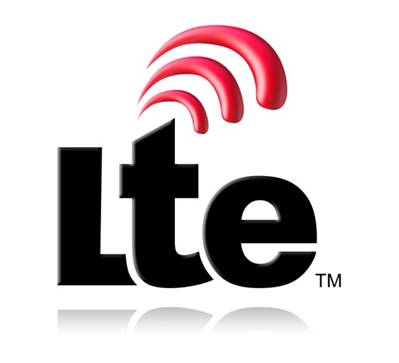UK 4G to Interfere with 2 Million TVs in Total
The UK's fancy new 4G will come at a price.
The UK government has revealed that there's going to be a bit of a trade-off when it comes to the launch of the country's 4G LTE coverage. Talk of 4G interfering with digital terrestrial television for over a year now. Earlier this year, the Department for Culture, Media and Sport (DCMS) reported that research into the situation suggested that close 900,000 people would be affected by interference from the new 4G network technology. Today, the Telegraph cites culture minister Ed Vaizey as saying 945,000 households using signal amplifiers could be affected, as well as 953,000 households that rely on communal aerials.
For those not familiar with the story, the problem lies with the 800Mhz spectrum used for mobile services being too close in frequency to the spectrum used for digital terrestrial television (DTT). This means there's a potential for interference from mobile base stations that could in turn affect some people's ability to receive DTT.
Vaizey said today that the carriers responsible for the 4G networks will also foot the bill for alleviating the interference caused by their new, faster networks. An independent body, "MitCo," has been set up to install filters in affected homes. These filters will be paid for with £180m in funding from mobile operators.
Last we heard, the filter in question would fit onto your digital TV box and block out noise. Though it can be done without the help of an engineer, the over-75s will be offered assistance in fitting the filter. Further, a helpline will be set up to help people affected by interference.
Follow @JaneMcEntegart on Twitter.
Get Tom's Hardware's best news and in-depth reviews, straight to your inbox.

Jane McEntegart is a writer, editor, and marketing communications professional with 17 years of experience in the technology industry. She has written about a wide range of technology topics, including smartphones, tablets, and game consoles. Her articles have been published in Tom's Guide, Tom's Hardware, MobileSyrup, and Edge Up.
-
back_by_demand People still watch terrestrial TV? Surely satellite, cable and Netflix have killed it.Reply -
stephenkendrick back_by_demandPeople still watch terrestrial TV? Surely satellite, cable and Netflix have killed it.Reply
Digital terrestrial television is free. Which of the three options you listed comes with a cost that low? -
stephenkendrick You have to pay a license fee per household whether you watch digital terrestrial, satellite, cable or even internet TV (for stations that broadcast over any of the standard UK distribution channels). This is effectively an everyday tax in the UK, and incidentally is free to those over the age of 75, those least likely to be interested in anything other than the 'standard' channels.Reply
You must pay the tax if you have any apparatus capable of displaying broadcast television programs, whether you actually do so or not. If you have an internet connected computer, you are arguably required to purchase a television license, as that equipment is capable of being used to view online television. I don't know that this has been legally tested against smartphones or tablets as yet, despite their obvious capabilities. -
g-thor ReplyVaizey said today that the carriers responsible for the 4G networks will also foot the bill for alleviating the interference caused by their new, faster networks.
Will they foot that bill out of their normal profits, out of the goodness of their hearts? I doubt that. It is the consumer who will pay for those filters and installers, by way of higher rates.
While the politicos like to make it sound like they're making big business pay for things, the reality on the street is the consumers still pay. -
syrious1 ReplyDigital terrestrial television is free. Which of the three options you listed comes with a cost that low?
In the US, we have FREE digital television too, but its absolute crap and without a high end antennae you get litterally 5 channels
IMO 4G would be better. -
blazorthon syrious1In the US, we have FREE digital television too, but its absolute crap and without a high end antennae you get litterally 5 channelsIMO 4G would be better.Reply
I have used free digital TV, I'm in the USA, and I had dozens of channels, most of which worked very well, and some of which were in HD. -
mdahouse stephenkendrickYou have to pay a license fee per household whether you watch digital terrestrial, satellite, cable or even internet TV (for stations that broadcast over any of the standard UK distribution channels). This is effectively an everyday tax in the UK, and incidentally is free to those over the age of 75, those least likely to be interested in anything other than the 'standard' channels.You must pay the tax if you have any apparatus capable of displaying broadcast television programs, whether you actually do so or not. If you have an internet connected computer, you are arguably required to purchase a television license, as that equipment is capable of being used to view online television. I don't know that this has been legally tested against smartphones or tablets as yet, despite their obvious capabilities.Reply
That is not true.
You need a valid TV Licence if you use TV receiving equipment to watch or record television programmes as they’re being shown on TV. ‘TV receiving equipment’ means any equipment which is used to watch or record television programmes as they're being shown on TV. This includes a TV, computer, mobile phone, games console, digital box, DVD/VHS recorder or any other device.
You do not need a TV License if you use a TV to watch DVD/Blu-Rays etc or to play XBOX/Playstation etc.
